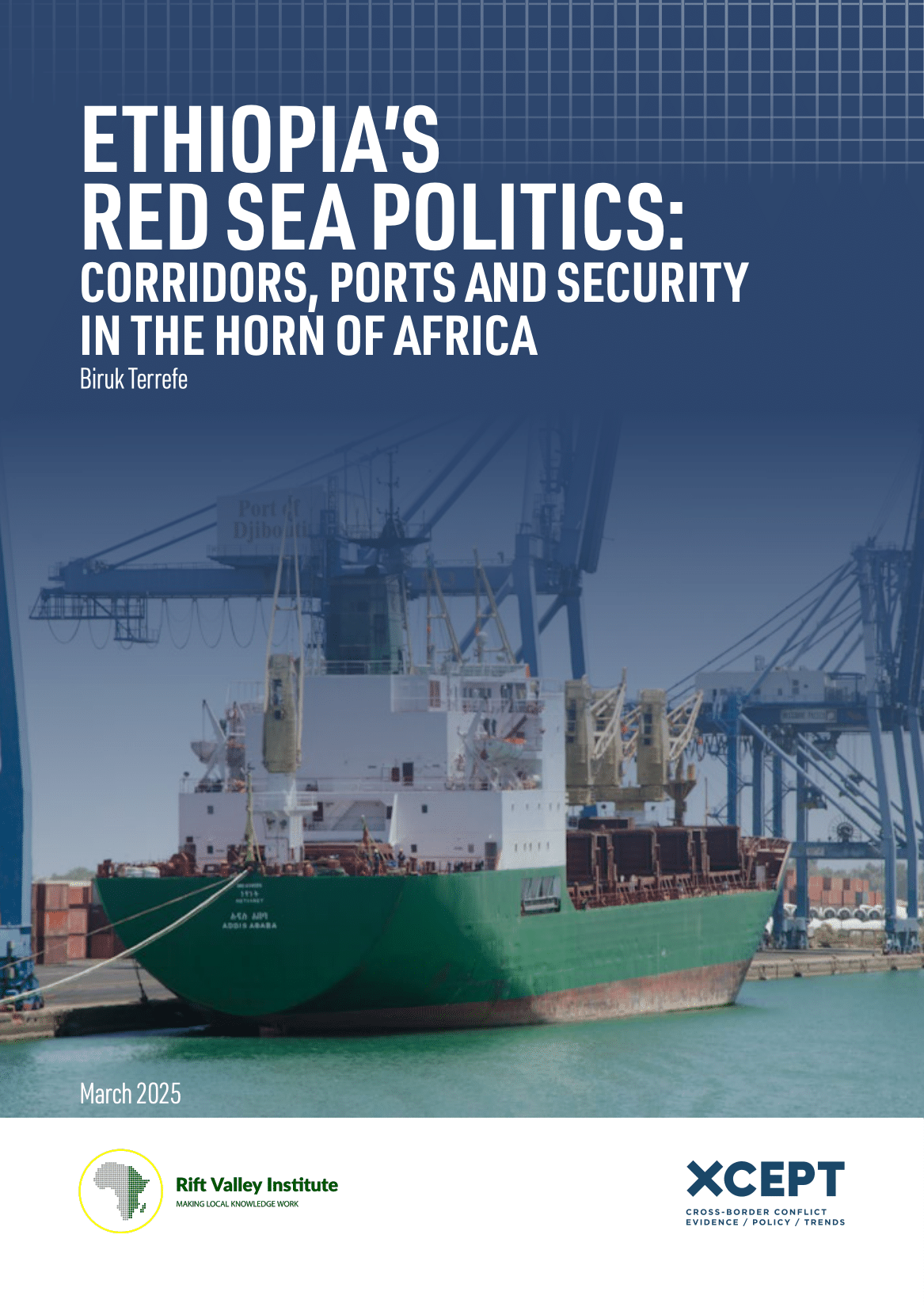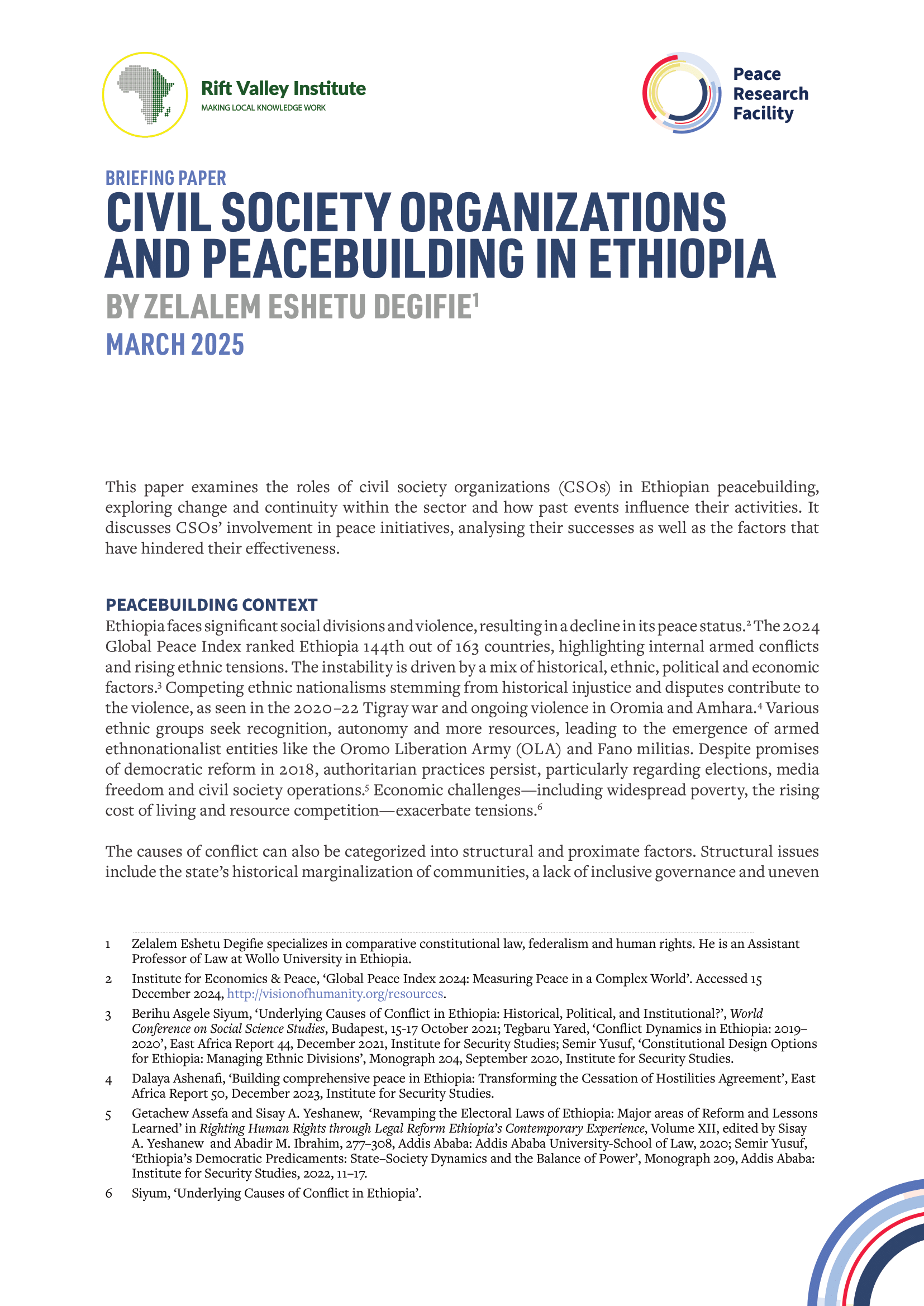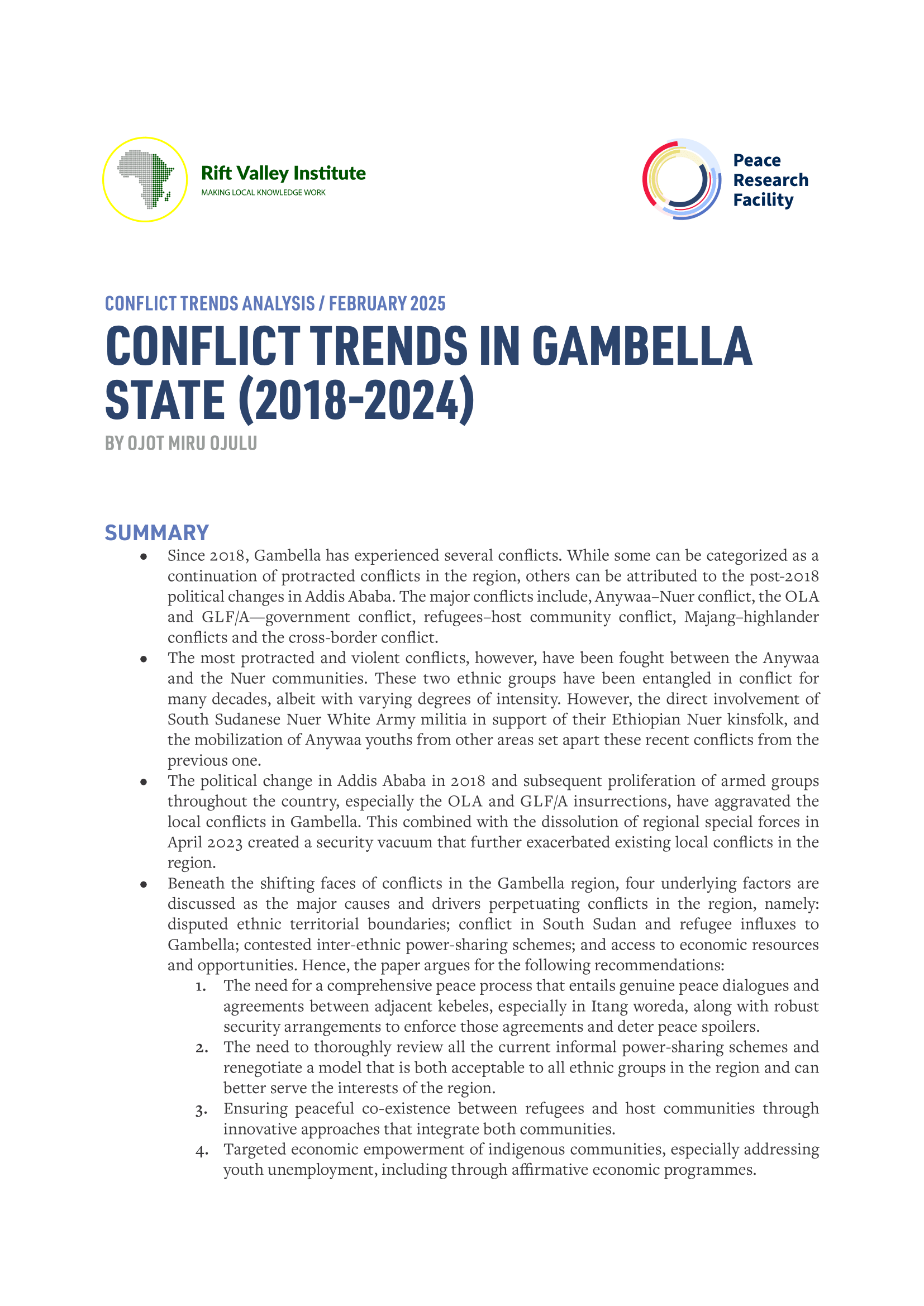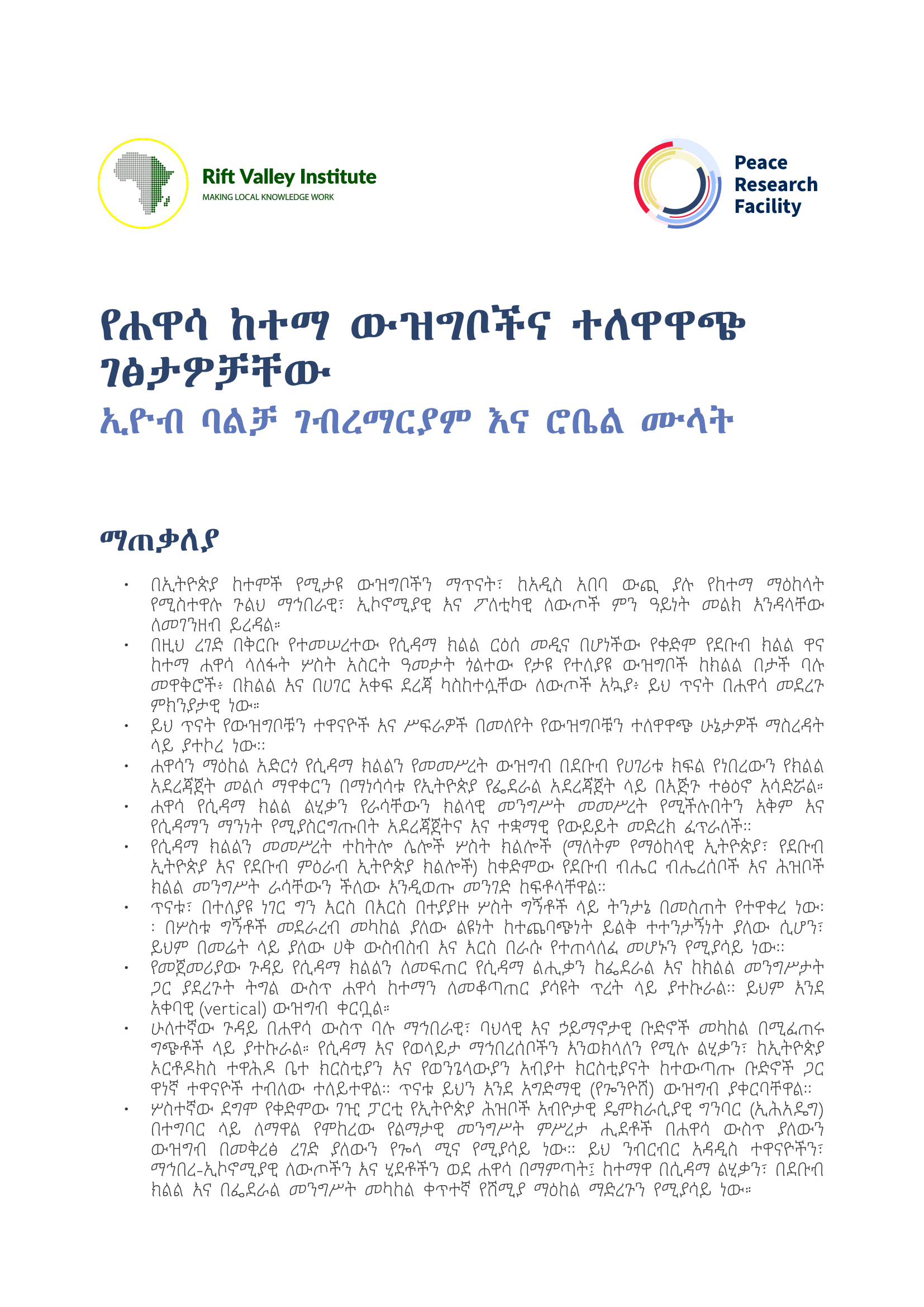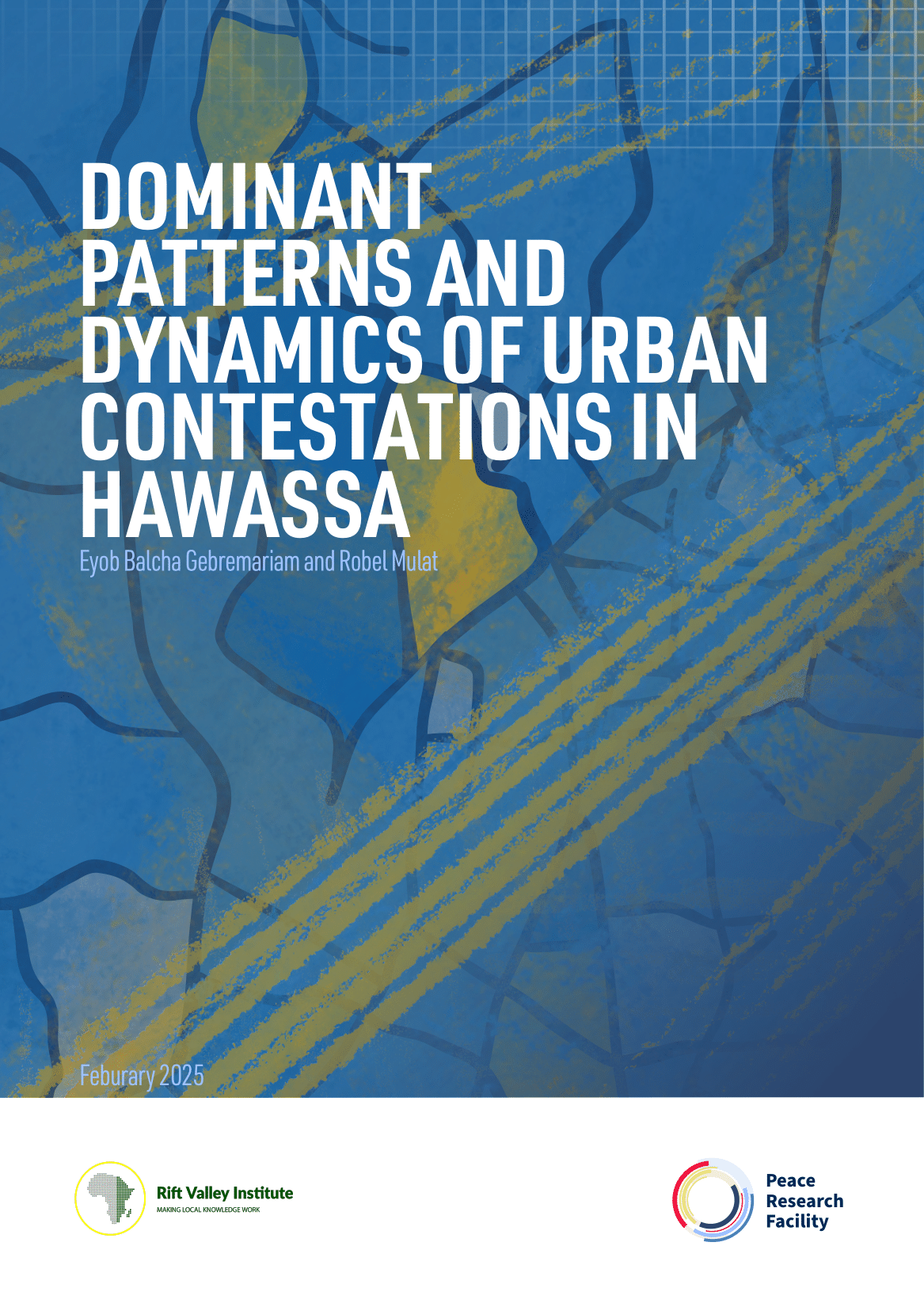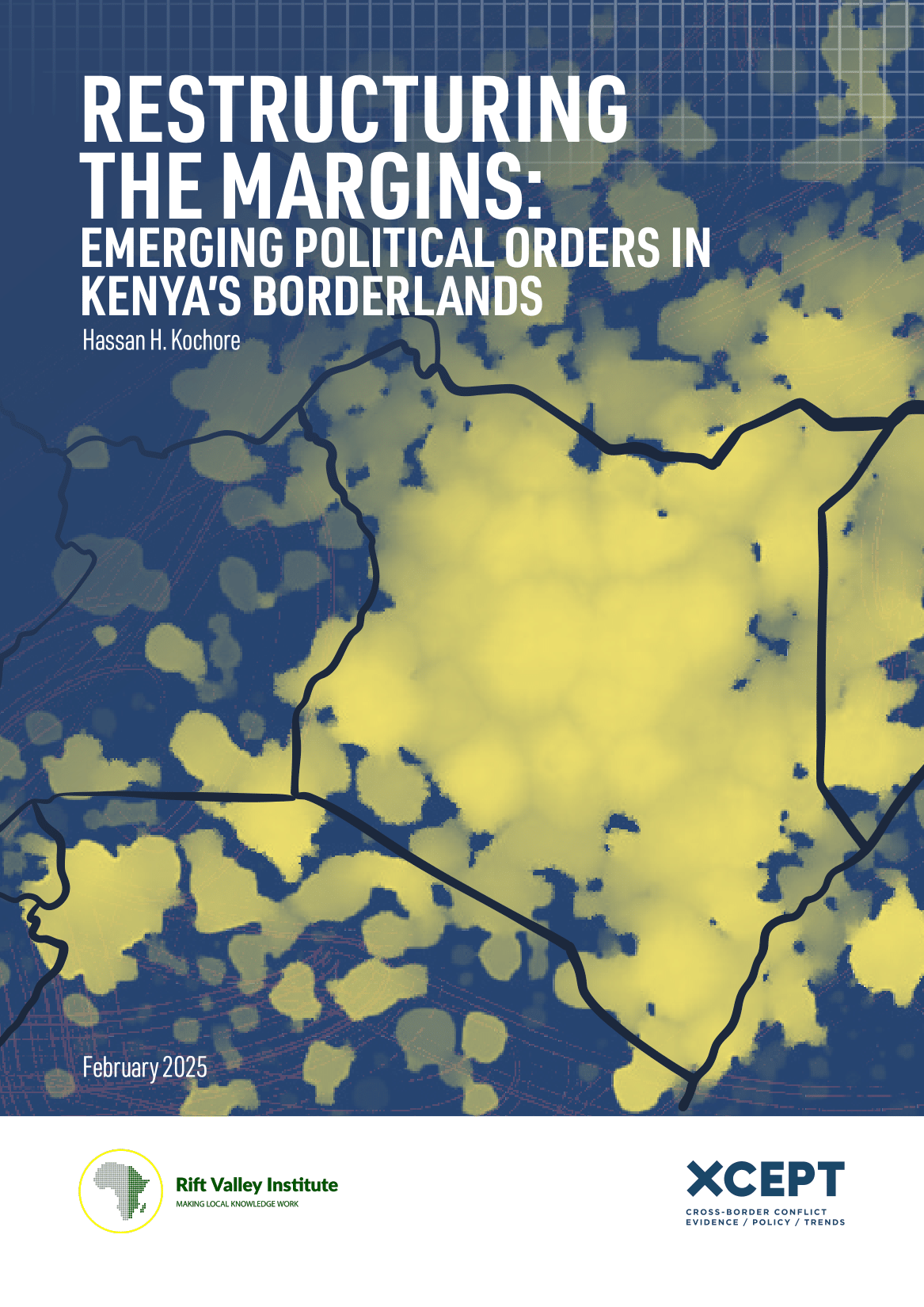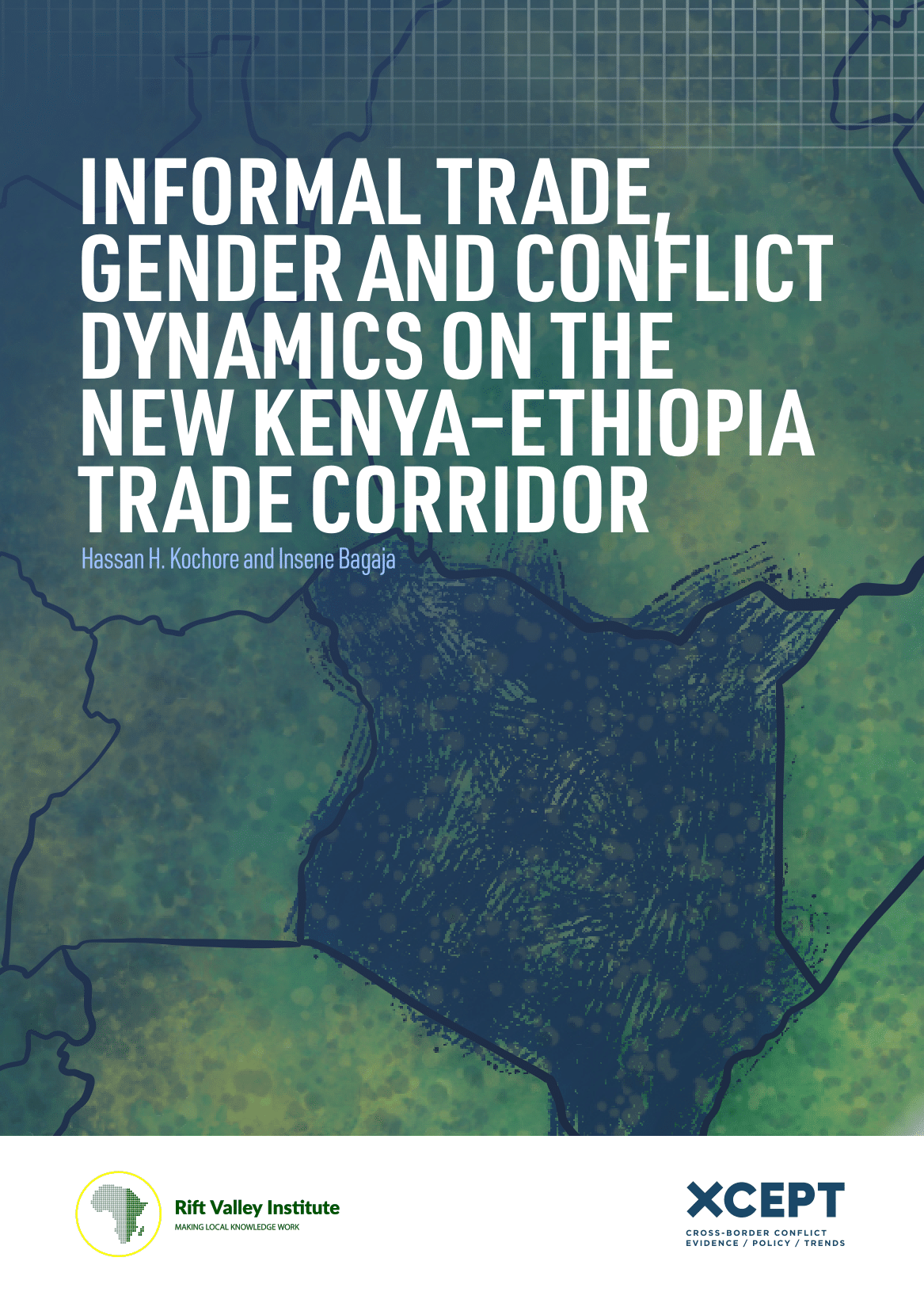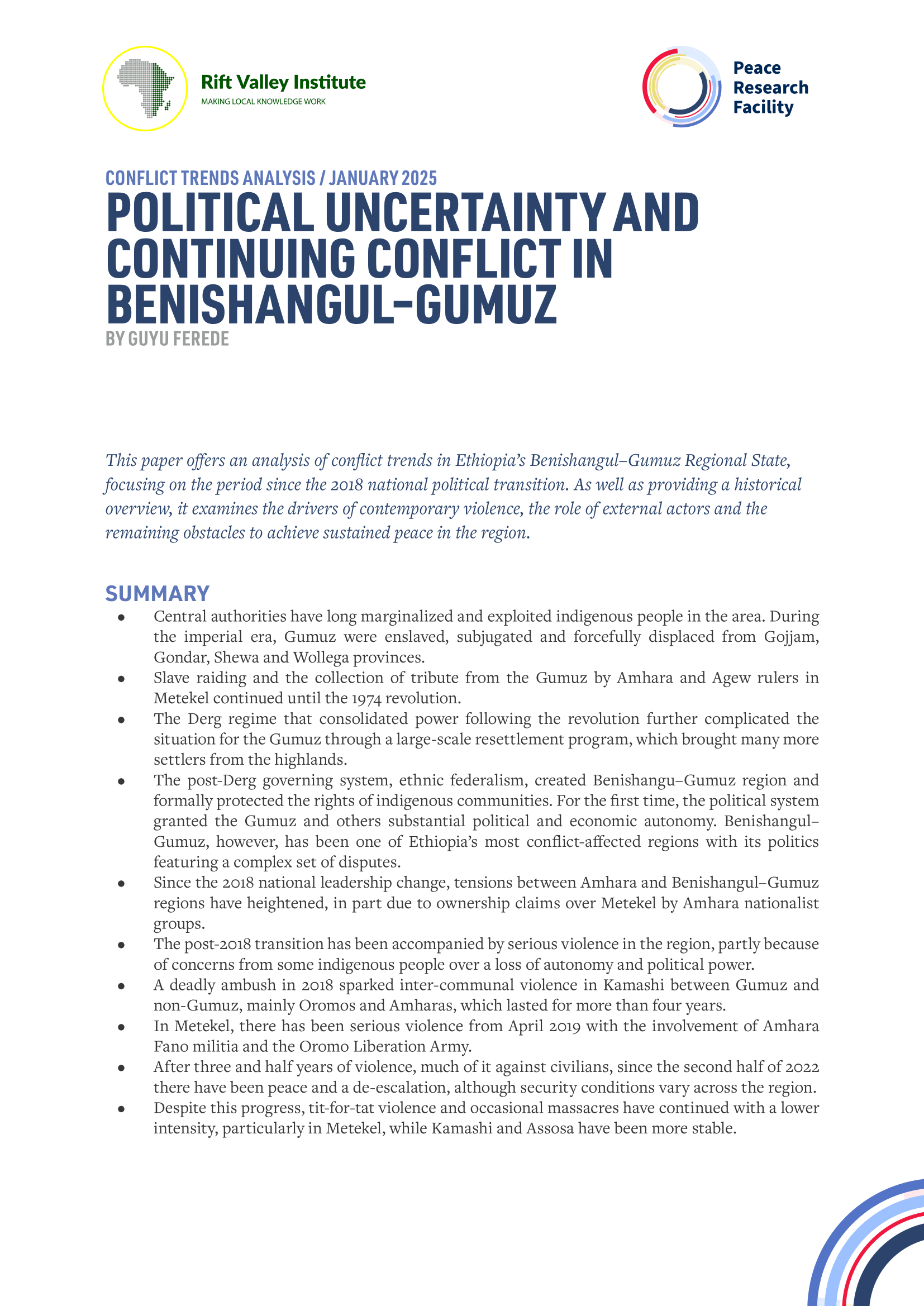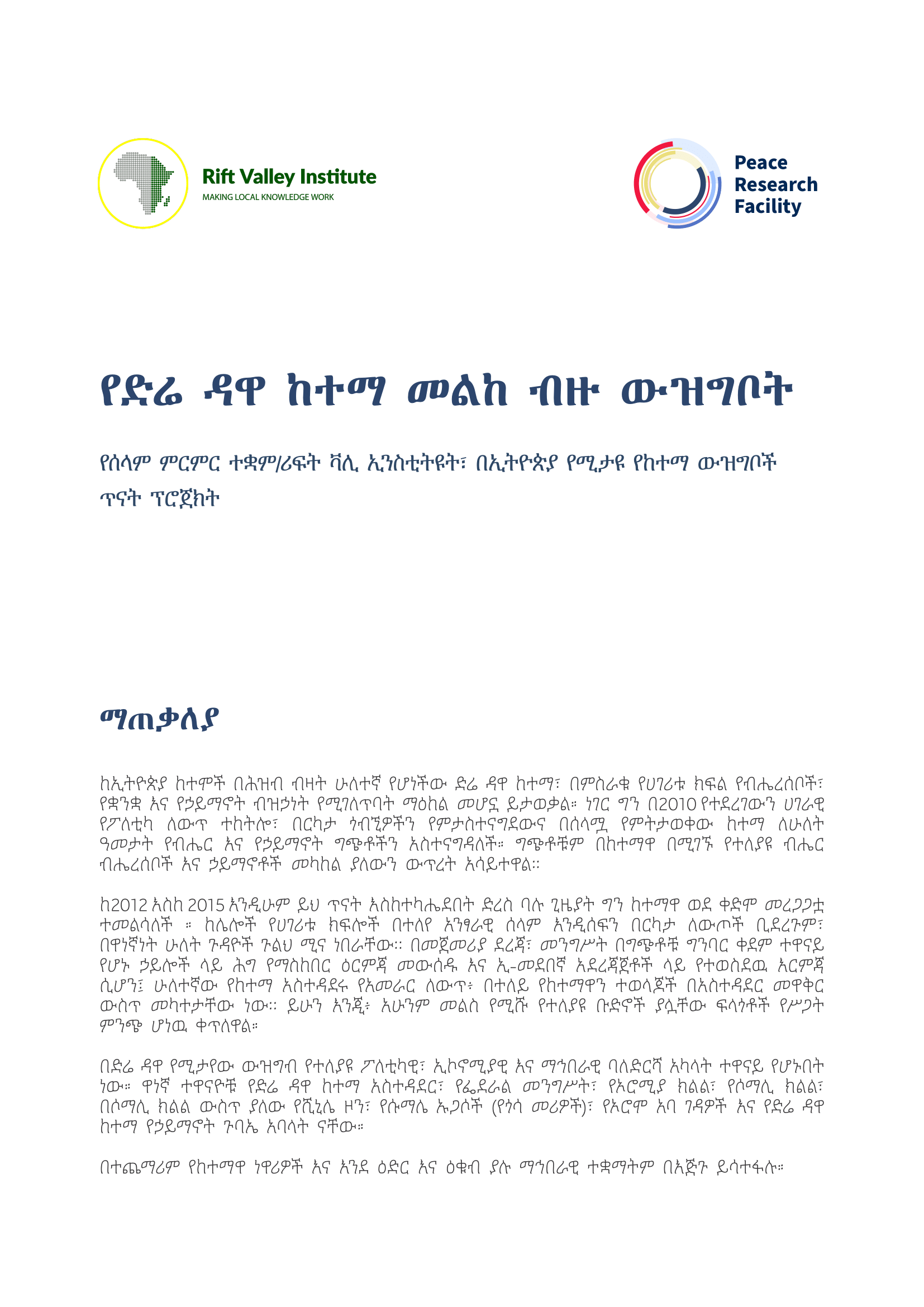The Horn of Africa is a region marked by complex infrastructural interdependencies, where the decline and emergence of trade corridors continue to reshape the economic and political relations within and between states. This study draws on the Memorandum of…
RVI publishes books, research reports, research papers, briefings and meeting reports in a range of formats. Publications cover policy, research, arts, culture and local knowledge in the countries of eastern and central Africa. Research publications—books, reports and papers—are peer-reviewed. Some RVI publications are also available in French and/or Arabic.
The RVI is a signatory of the Budapest Open Access Initiative (2001); all publications are free for download in PDF format under Creative Commons licences. The views expressed in books and reports published by the RVI are those of the authors, not the Institute.
SEARCH
PUBLICATION TYPE
LANGUAGE
REGION
COUNTRY
This paper examines the roles of civil society organizations (CSOs) in Ethiopian peacebuilding, exploring change and continuity within the sector and how past events influence their activities. It discusses CSOs’ involvement in peace initiatives, analysing their successes as well…
Since 2018, Gambella has experienced several conflicts. While some can be categorized as a continuation of protracted conflicts in the region, others can be attributed to the post-2018 political changes in Addis Ababa. The major conflicts include, Anywaa–Nuer conflict,…
በኢትዮጵያ ከተሞች የሚታዩ ውዝግቦችን ማጥናት፣ ከአዲስ አበባ ውጪ ያሉ የከተማ ማዕከላት የሚስተዋሉ ጉልህ ማኅበራዊ፣ ኢኮኖሚያዊ እና ፖለቲካዊ ለውጦች ምን ዓይነት መልክ እንዳላቸው ለመገንዘብ ይረዳል። በዚህ ረገድ በቅርቡ የተመሠረተው የሲዳማ ክልል ርዕሰ መዲና በሆነችው የቀድሞ የደቡብ ክልል ዋና ከተማ ሐዋሳ…
Studying urban contestations in Ethiopia’s secondary cities can help us understand how the urban centres outside of Addis Ababa are evolving during an ongoing period of significant socio-economic and political change. In this regard, Hawassa in Sidama region provides…
During the past decade, northern Kenya’s peripheral border counties have become key to the central state’s political and economic agenda. This synthesis report therefore uses the concept of ‘restructuring the margins’ to unpack the findings of two case study…
This report examines the effects of infrastructure development and shifting political conditions on trade and conflict at the Kenya–Ethiopia border, including on gender dynamics. In doing so, it focuses on how small-town cross-border traders in the town of Moyale,…
This paper offers an analysis of conflict trends in Ethiopia’s Benishangul–Gumuz Regional State, focusing on the period since the 2018 national political transition. As well as providing a historical overview, it examines the drivers of contemporary violence, the role…
ከኢትዮጵያ ከተሞች በሕዝብ ብዛት ሁለተኛ የሆነችው ድሬ ዳዋ ከተማ፣ በምስራቁ የሀገሪቱ ክፍል የብሔረሰቦች፣ የቋንቋ እና የኃይማኖት ብዝኃነት የሚገለጥባት ማዕከል መሆኗ ይታወቃል። ነገር ግን በ2010 የተደረገውን ሀገራዊ የፖለቲካ ለውጥ ተከትሎ፣ በርካታ ጎብኚዎችን የምታስተናግደውና በሰላሟ የምትታወቀው ከተማ ለሁለት ዓመታት የብሔር እና…
ይህ ጽሑፍ አዲስ በተቋቋመው የማዕከላዊ ኢትዮጵያ ክልላዊ መንግሥት ውስጥ በሀዲያ ዞን በምትገኘው ሆሳዕና ከተማ ለሀብት ባለቤትነት እና ቁጥጥር የሚደረግ ውዝግብ ላይ የተደረገ ጥናት ሪፖርት ነው። ጥናቱ የከተማዋን መስፋፋት ተከትሎ በቀድሞ በተወሰኑ ቡድኖች ተይዞ የነበረው የማኅበራዊ እና ኢኮኖሚያዊ ኃይል ተገለው…
Recent Publications

Political Economy of Cash and Markets in Sudan
February 27, 2026
The research provides a snapshot of the war in Sudan in the period from February to April 2025. However, the war is dynamic, with political alliances and territorial control changing. The April 2023 conflict between the Sudan Armed Forces (SAF)

Rethinking Ethiopia II: Youth and politics
February 26, 2026
Seminar report Rethinking Ethiopia, a collaborative essay competition initiative between Addis Ababa University’s Institute for Peace and Security Studies (IPSS) and the Rift Valley Institute’s (RVI) Peace Research Facility (PRF), offers a platform for Ethiopian youth to express their ideas

2025 Year in Review
February 16, 2026
The 2025 Year in Review provides an overview of the Rift Valley Institute’s work over the past year across eastern and central Africa. The report highlights RVI’s research and publication outputs, education and training activities, and public forums and convenings,

